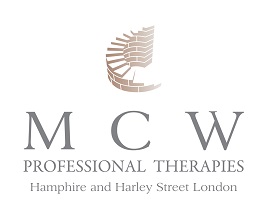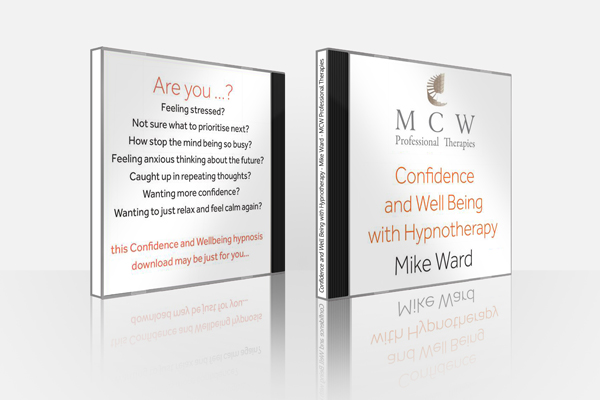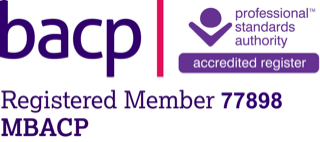Cbt and MIndfulness cogntive therapy Chandlers ford
(Cognitive Behavioural Therapy)
Cgnitive behavioural therapy and mindfulness cogntive therapy can be useful approaches for psychological issues.
Simply put... What is CBT?
Cognitive behavioural therapy is an evidenced based treatment approach with the idea that these three areas are connected and influence each other...
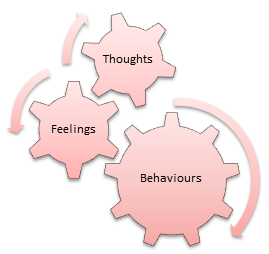
What this means from a CBT viewpoint is how thoughts affect feelings and then how feelings affect behaviour and understanding this further now, is how we may function in our thinking:
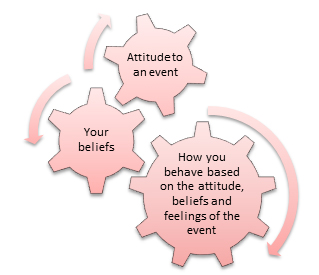
For example here are only some of the unhelpful ways of thinking:
if after reading them you are aware that some reflect your way of thinking, you can contact me for an initial consultation and click on the tab here ' helpful activities to overcome negative thinking' . These activities can help bring a deeper awareness to unhelpful thinking styles, that are sometimes just noticed as fleeting thoughts. By bringing them into awareness more clearly, it then provides the opportunity to begin reframing them into thoughts that can be more purposeful, or even developing the skill of letting thoughts go. Here is a suggestion, think of thoughts in this way. When you have a particular thought and you place energy into that thought, by thinking about it more, you begin to live in the feeling of that thought. You then begin to notice what those feelings are and think about those too. All of a sudden the whole sense is living in that thought and feeling, as though it were a reality? But what would happen if that initial though was not true and only an assumption that you thought was true? Imagine what would happen then? When you could stop living by some assumptions? To help you become more aware of the power of thinking and how this effects you biologically and how to begin the process of changing your thoughts, please click here on ' the power of thinking' for the answers you may have been looking for.
All or nothing thinking:
Do you remember the marmite advert? ''you either love it or hate it'' Well this sums up the style of all or nothing thinking. Experiences maybe deemed good or bad, success or failure? It is where your views are split into extremes and there is no flexibility in seeing and experiencing the many other alternatives available. Language attributed to this style of thinking are the words '' Never, should, must, have to, always and every ''. These words create rigid rules about how to behave leading to feelings of frustration, resentment, guilt, shame and anger. My experience informs me that clients with anxiety and panic disorders are often susceptible to this type of thinking.
Mental Filters and disqualifying the positive:
Have you ever used a sieve? In the bowl underneath you have the ingredients you do want and what's left in the sieve is the ingredients you don't want? Well again this has a similarity to our mental filters, only in this case the focus becomes stuck on the 'stuff' you don't really want. Mental filters are there for a good reason, we receive so much stimulus through our senses that it is impossible to consciously take all this information in each day. When thinking or anticipating particular events and the style of thinking is negative, all the sifting out of the pleasant and rewarding experiences of life have been ignored and focus is only on the negative aspects and dissatisfaction. Have a look at where your focus is in thought regarding particular experiences, exams, a recent test, a meal out? For example, you pass a test and receive a 90% score, your focus of thought is on the 10% that you didn't get, sifting out and not really noticing the huge achievement of 90%. This type of thinking can lead to anxiety, low mood, self-defeating thoughts and depression.
Catastrophising:
Remember the saying ''Making mountains out of mole hills''? Sometimes the internal thought is saying '' what if this happens, what if that happens, what if so and so... it will be a catastrophe. Again with this particular style of thinking greater focus is given to the worst possible outcome. You may have noticed already that the styles of thinking have similarities to each other, again this type of thinking can lead to signs of withdrawal, panic and anxiety, low mood and depression.
Emotional reasoning:
This style is all about that what you are feeling must be true? There becomes rigidness in the thinking style and belief. E.G I feel stupid so it means I am stupid, therefore others will think I am stupid. What happens here is that these thoughts then begin to generate the behaviours and you look for the evidence to prove it, which becomes a self-fulfilling prophecy.
Mind reading:
I like to call this crystal ball thinking or fortune telling. Now... human nature likes to have control and a degree of certainty about the future? I agree with this, I have plans for the week ahead, goals and aspirations and flexibility to change things as life unfolds. Now what happens in mind reading is again when thoughts become stuck and rigid, where there is a negative unrealistic prediction of a future event – resulting in feelings of doom and hopelessness. I am thinking it so it must be true and therefore the thought is taken as fact. Do you ever recall experiencing something and then after thinking it wasn't as bad as what you first thought? It's interesting to look at the initial thoughts.
Through specific techniques that you learn with me and practice you are able to begin developing the skills and resources, changing and updating limiting beliefs, to create healthier and alternative thinking patterns.
At times and depending on the type and depth of issues, we may decide together to purely use CBT as the therapy to develop the changes you want. When this occurs we agree a treatment plan that can be adjusted throughout the therapy to suit your needs and the changes that appear. I may at times ask you to record your thoughts, feelings and behaviours in a diary, so we are able to become aware of particular unhelpful patterns, bringing us the focus to change these areas.
Throughout CBT and in fact with all therapies that I provide, you will learn the skills to solve your problems so when you leave therapy, it is important that you continue to practice the strategies to ensure the mental habits you have changed for the better continue to create the healthy changes you want.
So be prepared to persevere if you want to get the best out of your CBT!
CBT is useful for: depression,panic & anxiety, panic attacks, stress, anger, phobias, social anxiety, trauma and PTSD, OCD, performance anxiety and fear.
